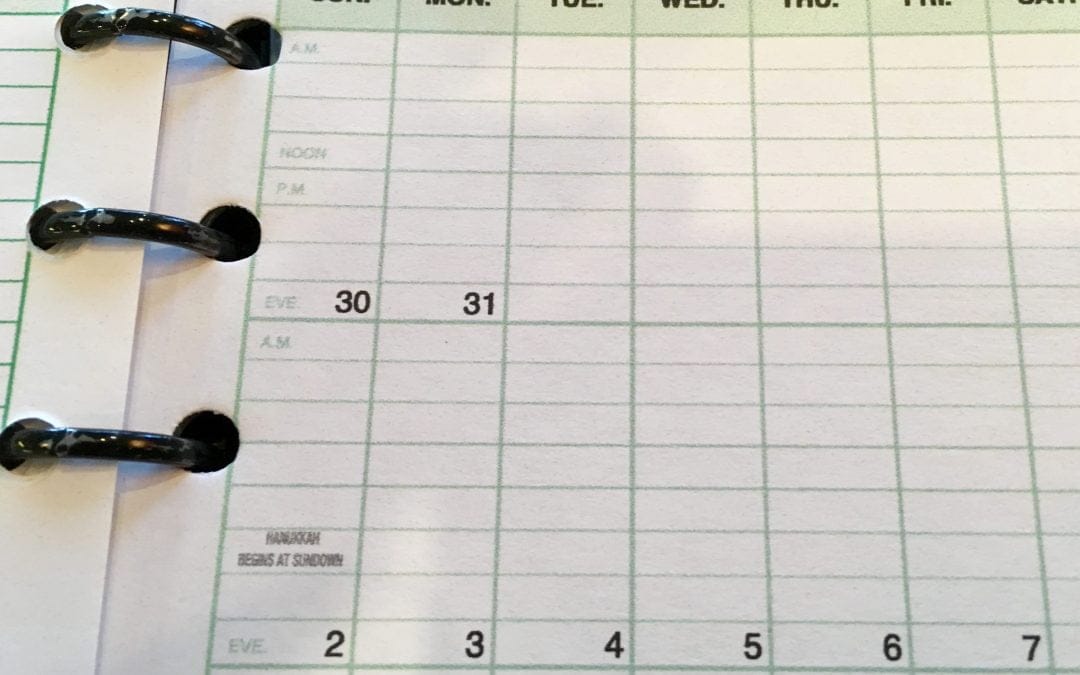My friend Steve Bean and I grew up in church-going families. As teenagers we found our first “real jobs” (defined by a paycheck with tax withholdings) at the restaurant in a newly opened Days Inn along I-75 at the Georgia-Tennessee border.
Our manager gladly arranged the weekend schedule so Steve, who was Seventh-day Adventist, could work Sundays. And I could pull in the big $1.60 per hour washing dishes and clearing tables on Saturdays while he was observing the Sabbath.
Seventh-day Adventists observe the traditional Jewish Sabbath — as do the lesser-known Seventh-day Baptists headquartered in Wisconsin. They hold that the seventh day of rest in the creation story and affirmed in the Ten Commandments is perpetual.
The more common Christian observance of the Lord’s Day (Sunday) is tied to the resurrection of Jesus. It is the designated day set aside for rest and worship. The dominance of this perspective can be seen in the now-fading “blue laws” in many church-heavy communities.
To me, the so-called Sabbath controversy is one I’ve never found controversial. While my whole experience has been with Sunday observance, I don’t have a day in this fight.
A 2011 book from Broadman & Holman addresses Perspectives on the Sabbath: 4 Views. That’s twice as many as my friend Steve and I had but never felt the need to debate.
The back cover identifies the four contributors and their positions: 1) Based on the fourth of the 10 Commandments, Saturday “must therefore remain the day of rest and worship for Christians;” 2) “Ever since the resurrection of Christ, the one day in seven to be kept holy is Sunday, the first day of the week;” 3) “Rest and worship are still required but are not tied to a particular day;” and 4) “The Sabbath commands of the Old Testament are no longer binding on believers.”
Basically, this still looks like two viewpoints for Christians when it comes to which day is designated for worship. My interest in the subject didn’t lead me into the book itself.
Likewise, one of my all-time favorite references is Mennonite scholar Willard Swartley’s Slavery, Sabbath, War, and Women: Case Issues In Biblical Interpretation (Herald Press, 1983).
Beyond benefiting from the deep exploration of these issues, a grasp of his introduction and “proposed method for Bible study” would knock out a lot of ignorance with which many well-meaning people make biblical claims.
While the pages are falling out of this well-used and treasured book with an ugly bright pink and purple cover, I’ve never cracked the section on Sabbath.
Maybe I’m missing something, but it seems clear (even to many who don’t embrace religious practice) that we are designed to need regular rest and restoration. The late Baptist pastoral care pioneer Wayne Oates, who coined the term “workaholic,” warned: You either choose your Sabbath or it chooses you.
With nearly a third of America’s workforce working on Sundays now, there is more choosing to be done than in the past.
And many people of varying faith traditions realize that much of who we are and what we should do flows out of our worship of God. Therefore, churches have some choosing to do as well.
Jim Somerville, pastor of First Baptist Church of Richmond, Va., in a lighthearted conversation while riding a van around scenic Yellowstone National Park recently, offered his platform should he ever run for president. He began by rattling off some positions that sounded good to me but would certainly not have wide appeal.
His final position, he said, would be to add one day to the week resulting in: Monday, Tuesday, Wednesday, Thursday, Friday, Saturday, Sunday — and Funday! That eighth day would be reserved for just having fun.
At that point I believed in Jim’s candidacy. All previous points would be forgotten by voters.
However, until Jim is in office and his national declaration becomes law, we are stuck with just seven days each week.
One is to be set aside for our rest and restoration.
Director of the Jesus Worldview Initiative at Belmont University in Nashville, Tennessee and former executive editor and publisher at Good Faith Media.



